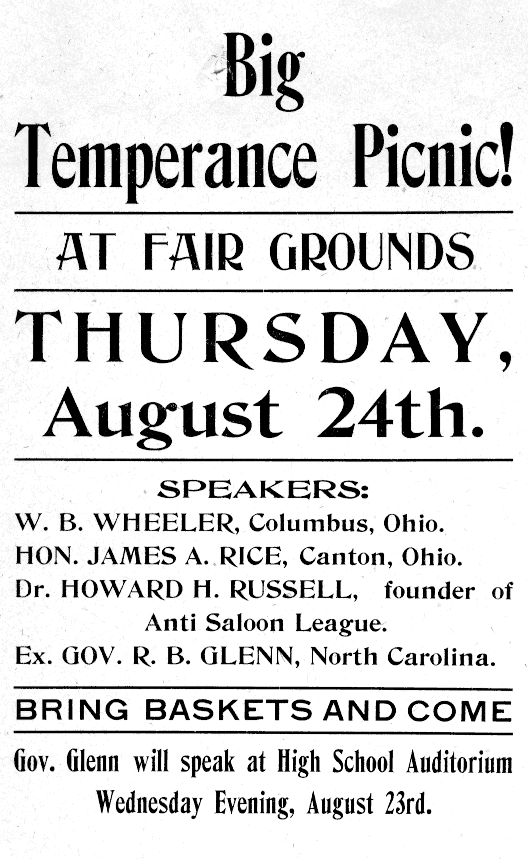The March to National Prohibition
Leaguers Propose 18th Amendment
In 1913, the League switched its sights from local option to the big picture - national prohibition. On December 10, 1913 a parade of over 4,000 Leaguers marched down Washington D.C.'s Pennsylvania Avenue singing temperance songs.
Waiting on the steps of the capitol to greet them were Congressman Richard Hobson from Alabama and Senator Morris Sheppard from Texas. Superintendent Purley Baker gave the two legislators copies of the proposed 18th amendment to the constitution. Subsequently Hobson and Sheppard introduced it to their respective legislative bodies. There it stalled.
The dry forces including the Anti-Saloon League, the Woman's Christian Temperance Union and reluctantly the Prohibition Party, which now was taking a back seat to the League, rallied to try to win dry seats on capitol hill. Pressure politics rolled into high gear.
Congress Is Buried in Avalanche of Dry Literature
Wayne Wheeler, later the head lobbyist for the League known to many as the "dry boss", described what the League did at this crucial time.
"Word went out from Washington and state headquarters to send letters, telegrams, and petitions to Congressmen and Senators in Washington. They rolled in by tens of thousands, burying Congress like an avalanche... We started off, early in 1914, with about 20,000 speakers, mostly volunteers all over the United States. They spoke at every opportunity to every sort of gathering...
"As the climax approached, we doubled our forces. Even that wasn't enough, so for a time the world's largest prohibition printing establishment ran three shifts a day, every hour of the twenty-four, grinding out dry literature."
As the result of these efforts, the drys gained seats in the 1914 elections.
Lobbying Efforts Fall Short, For Now
The Hobson-Sheppard bill came up for a vote after the 1914 election and fell short of the 2/3 majority it needed. The League redoubled its efforts and patiently bided its time waiting to re-introduce its legislative centerpiece after electing more dry legislators. The first world war gave it its next opportunity to win the battle with the saloons.
About the League
Museum Hours
Monday-Saturday: 9am-6pm
Closed on Saturday: 1-2pm
Closed on Sunday









